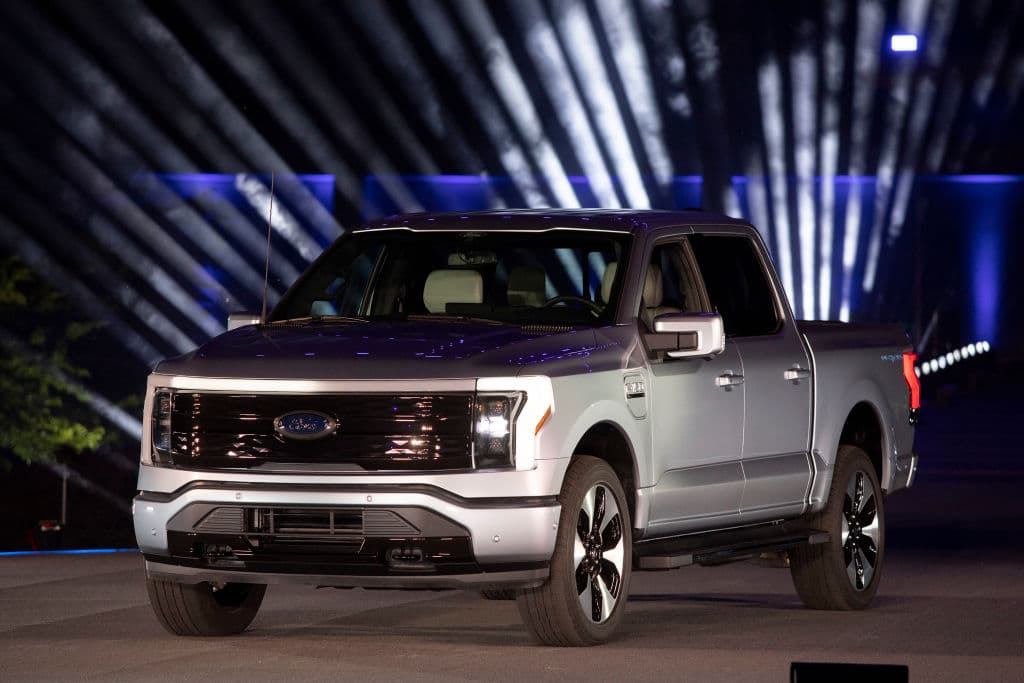The Tough Case for Electric Trucks
Manufacturers think EV pickups are the key to their electric success — but potential customers shouldn’t be so confident.

Elon Musk’s trick with Tesla was not making a good electric car. That isn’t enough. What made Tesla so successful is that he built a car that was better than any of its competitors, and happened to be electric. He pulled this off with the Model S premium sedan; then repeated it with the smaller Model 3; and repeated it again with crossover Model Y, which became the best-selling new car in quarter one 2023.
In 2019, Mr. Musk promised to pull off the same trick for the pickup market, with his futuristic, polygonal Cybertruck. The thesis was simple. An electric powertrain is more space efficient than a diesel engine yet mechanically simpler, far more powerful, with instant torque, and low running costs. It made business sense too.
The Ford F-150 remains America’s best-selling vehicle, and potential customers aren’t concerned by the added weight and loss of driving dynamics that comes with batteries. Though the Cybertruck is still yet to release, Ford, GM, and Rivian all bought in, and have brought electric trucks to the market.
But the reality of pickup is not that simple, and flaws of electric power become unignorable when faced with the loads, tows, and rough roads of trucking. Put simply, if you need a pickup for work, your old Ram will still outshine the brightest new EV option.
To the layman, an electric truck makes a lot of sense. A pickup consists of two long rails, with wheels and suspension bolted to the bottom of them, a cabin and engine to the front, and a bed at the rear. That’s strikingly reminiscent of the ‘skateboard’ model that underlies most electric cars — motors on the corners, a bed of batteries in the floor, with a body on top. Simply fill those rails with a bed of batteries, replace the engine with electric motors, and voila.
But three chief problems remain. Electric trucks are more expensive to buy, far more extensive to repair, and have worse, less reliable range.
For the first: a combustion F-150 starts at $33,695 but an electric F-150 Lightning will set you back, minimum by more than $59,564, if you wait until next year. And it only gets worse when looking at competitors.
Rivian announced their R1T would start at $67,500, but when production started, this had soared to almost $80,000. Though GM and Ford both promise to make sub-$50,000 versions of their EV trucks, they’re not there yet. General Motors’ debut EV pickup was the $112,596 Hummer EV ‘Edition 1.’ And none of this accounts for dealer markups.
And what do you get for this EV premium? More technology, which need not be EV exclusive, and more problems, which are.
You don’t need a Tesla for semi-autonomous driving, given that Cadillac pairs their Super Cruise system with their gas devouring Escalade, and large touch screens are coming to all cars — sadly.
However, though electric vehicles are theoretically easier to repair than their combustion engine equivalents, the reality is that batteries age, particularly with heavy use. Battery exchange systems — like swapping out a barbecue’s gas cylinder — have yet to take off, so electric cars are ticking down to an eventual, inevitable multi-thousand dollar battery replacement bill, or a premature relocation to the scrapheap.
This is concerning for commuter cars, but the average driver changes cars roughly every seven years, upgrading to something newer, fancier, or more accommodating to their current lifestyle. By contrast, you may use the same truck for twenty years; and as the battery weakens, the range will too.
More than either the price or the eventual repair bill, the range issue is the biggest problem; and the most impermeable. On paper, an F-150 Lightning may go further on a full charge than a competitor with a full tank, but electric range is far more sensitive to circumstances.
Lightning owners report their range sometimes halving when the temperature drops, and heavy payloads and towing noticeably eat into it too. As a Ford representative reportedly told Neal Pollack in the Observer, “The 300-mile range is assuming you’re floating on marshmallows while tugged along by a unicorn.”
Given that towing and hauling are the main functions of a working truck, and unicorns and marshmallow floats are in short supply, the risk of running out of charge is often a dealbreaker. Fast charging stations are almost as rare as the aforementioned unicorn, and if you find one, it’s usually accompanied by a long queue or an “Out of Order” sign. And even so, it’s still a lot faster to stop at a gas station
Will it always be the case that electric pickups are far inferior to their combustion powered cousins? No.
Battery technology continues to improve at a rapid pace, the price of EVs will fall with further adoption, and charging networks continue to grow. Even without incoming bans on new combustion-powered cars, there’s a lot of inherent promise in pairing EV systems with utility vehicles.
Without a large engine to account for, the newly announced Telo MT1 has its cabin shifted right to the front, allowing for a full-size bed in a pickup the size of a Mini Cooper. That’s great, but it’s just a computer render with a pre-order page, and who knows if it ever releases.
Nikola Motors and Lordstown Motors were once the next big EV start-ups, promising to bring electric trucks to market with better technology and lower prices than the big players. Last month, both companies faced NASDAQ delisting, after their share prices fell beneath a dollar. In October, Nikola’s founder, Trevor Milton, was found guilty on three federal charges of wire and security fraud.
It’s only a matter of time before electric trucks work as well as they do on paper. But it will take time. Put simply, if you’re happy with your F-150, don’t trade it in for an electric version.
At least not yet.

